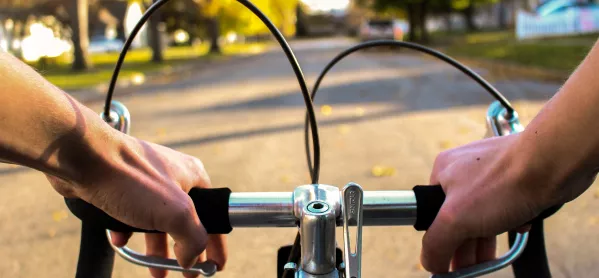Some senior pupils are missing out on their lunchbreak and chunks of lessons because they are having to travel between multiple schools in order to access courses, first minister Nicola Sturgeon has been told.
Scottish Conservative MSP Maurice Golden raised the issue at First Minister’s Questions this afternoon in the Scottish Parliament.
He said one S6 pupil - who had been refused support from his local authority to take taxis to lessons in other schools - was cycling for up to 45 minutes between lessons so he could access Advanced Higher courses that were running in three different schools.
However, Renfrewshire Council said - whilst one school was seven miles away - pupils were encouraged to use public transport and were reimbursed for the cost.
Mr Golden said: “Cameron Barclay, a sixth-year pupil from Renfrewshire, is trying to study for his Advanced Highers. I say “trying” because he must attend three separate schools and, because Renfrewshire Council refused to help him with taxi costs, he must make a 45-minute cycle journey between them, which sees him miss both class time, and lunches, every week. Does the first minister think this is acceptable?”
In response Ms Sturgeon said that she would get the deputy first minister and education secretary, John Swinney, to look into the case.
Generally, she said, neighbouring schools would sometimes deliver different courses in order for pupils to have access to “as broad a range of qualifications as they can”.
Ms Sturgeon added: “Some schools in different clusters will provide different qualifications and young people go to different schools to access that. So that is part of how we deliver qualifications. As I say I am more than happy to get the deputy first minister to look at the case the member is raising but the principle here is that we want to ensure that young people get access to as broad a range of qualifications as it’s possible to do.”
A Renfrewshire Council spokesperson said: “Any pupil travelling to another school as part of their Advanced Higher studies should travel by public transport wherever possible and are reimbursed for the cost of the journey. Alternative transport is provided if there is no public transport available or the commute impacts upon their timetable.
“In this case, the pupil is studying three Advanced Highers and travels to a partner school one mile away and to another seven miles away, which is easily accessible by public transport and with at least one hour and thirty minutes between classes. The travel involved and transport arrangements were outlined to the pupil and parents at the time the subjects were chosen.”
Cuts to council education departments have led to a shake-up of the way secondary education is delivered. Some authorities have adopted “city campus” arrangements where pupils travel to access some Higher and Advanced Higher subjects. In the case of Glasgow, there is the Advanced Higher Hub at Glasgow Caledonian University, which offers between 100 and 160 S6 pupils the chance to study Advanced Highers in eight subjects each academic year.





